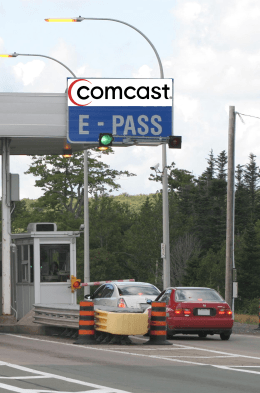
Verizon Wireless customers exchanging defective phones can expect to receive a pre-owned, "like-new" replacement from the wireless company.
Some Verizon Wireless customers are upset by the wireless company’s refusal to replace brand new, but defective phones with an equivalent brand-new phone, even just a few days after purchase. Instead, customers are handed returned, usually refurbished phones originally used by other Verizon Wireless customers.
For some customers, that is tantamount to getting back “other people’s problem-phones.”
“You honestly have no idea how the last customer who owned the phone treated it,” writes Stop the Cap! reader Jenna, who lives in Fort Wayne, Ind. “That person could have used it as a coffee coaster or dropped it in the street — how can you know?”
Jenna is upset because she purchased a brand new Verizon Droid phone and paid a premium for it in order to keep to just a one-year service agreement.
“This is one expensive phone, costing me hundreds of dollars, and it just quit working two days after I bought it,” she writes.
When she returned to the Verizon Wireless store expecting a new, off the shelf replacement, she was shocked when the company would only hand her a used, “re-certified” phone.
“I bought a factory fresh phone and that is what I expected to receive. I could understand getting a refurbished phone if I had the phone six months, but 48 hours after purchase, no way,” she said.
Jenna’s replacement was handed to her in a plain box shrink wrapped with a “like new” sticker attached to the front.
“If I wanted ‘like new’ I would buy a used phone on eBay,” Jenna explains.
Despite several attempts, Verizon steadfastly refused to replace her dead phone with a new one, so Stop the Cap! alerted Jenna to the fact Verizon has a 30-day “worry-free” guarantee for new customers or those renewing contracts. “If you’re not completely satisfied, you can cancel service within 30 days and pay no early termination fee if you return your device. A restocking fee may apply.”
“Thank you for letting me know about the 30-day trial, which gave me new leverage,” Jenna follows up. “I walked into Verizon Wireless and talked to the same guy who refused me the first time and told him I wanted to return the phone under the 30 day policy and like magic the heavens opened.”
Jenna reports not only did the store manager promptly offer to replace her phone with a factory-sealed model, she also received some free accessories to make up for her inconvenience.
“The only way phone companies listen is when customers have some leverage to hit them in their wallets,” Jenna said.
Jenna also complained to several consumer reporters in the Fort Wayne area. WANE-TV did a story on a reporter’s own personal experience with Verizon’s intransigence.
Jason Wagner, a Verizon Wireless store manager, told the reporter he actually preferred getting and using refurbished phones.
“I personally would rather use a certified, pre-owned [phone], Wagner explains. “I know this phone has been checked […] and is going to work the way it should.”
“Good — he can have mine,” said Jenna.
[flv width=”480″ height=”380″]http://www.phillipdampier.com/video/WANE Ft Wayne Verizon Defends like-new Policy 11-17-10.flv[/flv]
WANE-TV in Fort Wayne talked with Verizon Wireless about their exchange policies after a reporter at the station tried to exchange her defective phone. (2 minutes)


 Subscribe
Subscribe





